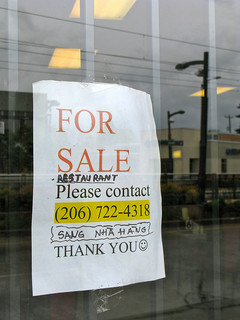California generally goes by the American Rule for attorney fees- the parties are generally responsible for their own fees. In situations involving written contracts, however, they parties may provide for payment of attorney fees in the event on a dispute. I have written before regarding attorney provisions in:
—actions on commercial lease deposits;
–the CAR (California Association of Realtors) form & a failure to mediate; and —Promissory Notes and the breach of the implied covenant of good faith and fair dealing.
Sacramento business and real estate attorneys are often asked about the impact of such a provision in a contract. This article addresses the language of an attorney fee provision in general, and whether it covers just actions on the contract, or are broader, encompassing tort (eg. Negligence or fraud).
 In Catherine Maynard v. BTI Group, Inc., BTI acted as the broker for the sale of Maynard’s business. The business was sold, but there was no security agreement securing the purchase price. The buyer later filed bankruptcy, and the balance of the purchase price was not paid. Maynard sued BTI for failing to get security for the deal.
In Catherine Maynard v. BTI Group, Inc., BTI acted as the broker for the sale of Maynard’s business. The business was sold, but there was no security agreement securing the purchase price. The buyer later filed bankruptcy, and the balance of the purchase price was not paid. Maynard sued BTI for failing to get security for the deal.
The listing agreement, which was the contract between the parties, had the following attorney fee provision:
“All parties to this agreement agree to mediate, in good faith, any dispute prior to initiating arbitration or litigation. The prevailing party in the event of arbitration or litigation shall be entitled to costs and reasonable attorney fees except that any party found in those proceedings to have failed to mediate in good faith shall not be so entitled.” (This is similar to the CAR form provisions, noted above)
The court awarded Maynard the balance of the purchase price, to be paid by BTI, so she sought attorney fees as she had a net judgment against BTI. But, she did not prevail on her contract cause of action, so BTI claimed that they were the prevailing party under Civil Code section 1717. This code section states:
“In any action on a contract, where the contract specifically provides that attorney’s fees and costs, which are incurred to enforce that contract, shall be awarded either to one of the parties or to the prevailing party, then the party who is determined to be the party prevailing on the contract, whether he or she is the party specified in the contract or not, shall be entitled to reasonable attorney’s fees in addition to other costs.”
However, the court that you do not necessarily start with 1717. You must first look at section 1021, which states:
“Except as attorney’s fees are specifically provided for by statute, the measure and mode of compensation of attorneys and counselors at law is left to the agreement, express or implied, of the parties..”
If the contract limits attorney fees to the party that prevailed on the contract, then 1717 applies. But the provision does not need to be that restrictive- it can cover non-contract claims as well. If it does, then the prevailing party will usually be the one with the greater NET recovery.
The court noted a similar case, in which the attorney fee provision in a lease stated:
`If civil action is instituted in connection with this Agreement, the prevailing party shall be entitled to recover court costs and any reasonable attorney’s fees.’
 In that case, the court found the provision was not limited to the breach of contract cause of action, and therefore the court did not have to restrict its analysis to the breach of contract, but also included the tort causes of action. And, in determining the attorney fee award, the court did not have to apportion between attorney fees incurred for the breach of contract claim and the tort claims- the lease contemplated recovery of fees for all claims in any action in connection with the lease.
In that case, the court found the provision was not limited to the breach of contract cause of action, and therefore the court did not have to restrict its analysis to the breach of contract, but also included the tort causes of action. And, in determining the attorney fee award, the court did not have to apportion between attorney fees incurred for the breach of contract claim and the tort claims- the lease contemplated recovery of fees for all claims in any action in connection with the lease.
The court pointed out that the problem arises when one confuses the idea of prevailing in the lawsuit with that of prevailing ‘on the contract.’ Here, the provision applies to fees occurred in ‘any dispute.’ It is similar to claims regarding provisions which call for fees “in connection with” a particular agreement; or to any action “arising out of” an agreement. These are not restricted to actions to enforce a contract. Those restricted to contract claims trigger application of 1717.
This decision is a good discussion of how to draft an attorney fee provision to do ewhat you want it to do; cover only contract claims, or to cover any kind of dispute.
photos:
http://www.flickr.com/photos/viriyincy/4644083734/sizes/n/in/photostream/
http://www.flickr.com/photos/caroslines/2361619710/sizes/n/in/photostream/
 California Real Estate Lawyers Blog
California Real Estate Lawyers Blog

